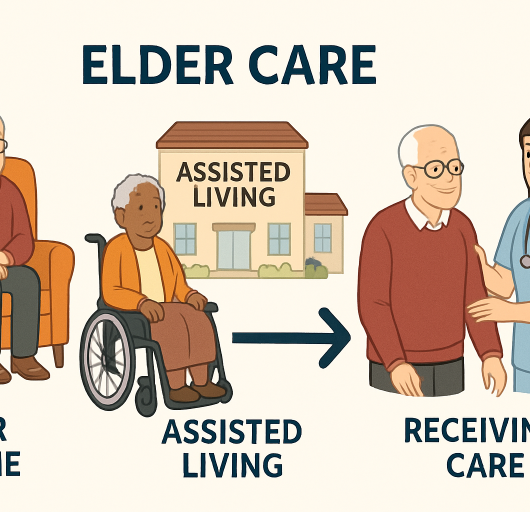CBD & ADHD – What we know so far

In the last decade, CBD has received quite the attention within the academic, scientific, and social circles. With recent studies producing interesting results, the topic of CBD & ADHD took the even greater spotlight. Thus, we take a tour of what CBD is and how it can help patients with ADHD syndrome.
Taking into account previous research efforts and newest discoveries, we aim to shed light on what is known right now. Additionally, we investigate potential drawbacks the oil might have on both adults and children.
Properties of CBD
CBD (Cannabidiol) is a substance coming from a Cannabis Sativa, more colloquially known as a the marijuana plant. Not to be confused with the illegal component, THC (delta-9-tetrahydrocannabinol), CBD is not a psychoactive substance. It is a phytocannabinoid (formula C21H30O2) that pharma companies use while producing CBD oil and similar products.
Apart from marihuana, CBD is found in hemp plant as well. However, hemp oil is deemed as less effective when compared to cannabis counterpart, according to a Hilderbrand’s research study.
Although the study claims that many of the benefits of cannabis-based CBD oil are inflated, it also notes that the marihuana component produces more transparent results. We would recommend tracking down the latest findings on CBD use as a medication to keep up with updates.
Discovered in 1940, the first medication that contained the cannabis component was a drug called Epidiolex. The U.S. Food and Drug Administration (FDA) approved the medicine distribution in 2018, effectively legalizing CBD.
Currently, several experts claim that CBD activates serotonin receptors, forcing the brain to release dopamine.
As such, through dopamine, cannabis component can combat severe medical conditions, including depression, anxiety, and of course, ADHD. Known forms of CBD consumption include CBD topicals & creams, CBD oil & tinctures, capsules, and isolates. According to Kyor, cannabidiol interacts with the endocannabinoid system of patients, increasing patient body’s production of its own endocannabinoids.
CBD & ADHD: Benefits it Might Provide
Through past research efforts, CBD grew in popularity as a medical drug used for epilepsy treatment to many other disorders. However, most of the major discoveries regarding its medical use are still undergoing detailed research, especially related to ADHD cases. So far, a limited number of investigations suggest that several benefits can be reaped from CBD for different age groups.
According to the Liflin et al. (2014) study, the use of cannabis-related medications might underline hyperactive symptoms. The research included 2,811 cannabis users and mostly concentrates on marihuana use and the effects it has on ADHD symptoms. The offset is possible through compensation of low frontal alpha relative and absolute power.
Another research study by Blessing et al. (2015) points out that CBD use can greatly impact anxiety disorders, visibly reducing the severity of symptoms. The analysis included 49 primary preclinical, clinical, or epidemiological studies. The research concluded that CBD dosage by inhaling or through mouth consumption does not have anxiogenic effects.
Recently, a study by Hazekamp (2018) suggested that large CBD dosage still produced fewer effects on patients’ health. However, companies producing such medications play a major role. Pure CBD oils can help battle schizophrenia symptoms and pain reduction.
Treatment of Children
Most studies so far concentrated on adult patients, rather than children.
The reason is quite simple – cannabis use is followed by a stigma of drug addiction and social consequences. Several social media studies provided very limited insights regarding the CBD usage for children, with no real concrete evidence for or against the drug application.
Doctor consultations are thus a must, to determine whether CBD is the right treatment for their children. This is especially true for the age group of 14 years old and less.
CBD Setbacks
Although somewhat rare, there is a chance of side effects to appear while consuming CBD oil and other cannabis products. Some of the known CBD setbacks include:
- Side Effects
Some side effects are more common than others, though they vary from person to person in terms of intensity and duration. These include low blood pressure, dry mouth, slight to severe drowsiness, and lung irritation (vaping usage). Additionally, a study by MedlinePlus concluded that liver injury is possible as well but much less common than other, less severe effects.
- Mix with Other Medications
So far, very few research studies were dedicated to understanding CBD’s compatibility with other drugs. Nevertheless, some cases did show that consumption might lead to an increased level of side effects, as previously mentioned.
- Machine Contamination
Since CBD oil is not regulated as much as other drugs, it is possible that companies might neglect safety protocols usually in place within the pharma industry. As such, oil can be contaminated, especially if the manufacturer is relatively unknown to the public.
It is important to mention that long-term adverse effects of CBD products are still unknown. It would take large scale research efforts over prolonged periods of time to determine what kind of side effects can occur while consuming CBD products.
Legal Implications
Some experts might point out the US Farm Bill in 2018 as the catalyst of the CBD usage explosion. However, that does not mean that all CBD treatments are legal around the globe. Cannabidiol drugs that contain even the smallest fraction of THC are classified under Schedule I substance, unacceptable for medical use.
Thus, if the CBD substance comes from hemp as a source, it is legally acceptable. However, if it originates from marijuana instead and contains THC, it is not. Outside of the US, the legal aspect of CBD treatments depends on per-country basis. Most governments are yet to accept cannabis medical use, often banning the proponent alongside with all other variants of marihuana.
Importance of Prescriptions
Taking into account adverse effects, it is crucial that patients understand that each ADHD case is unique. Treatment should take into account a patient’s personal lifestyle, type of behavioral disorder and age group. Thus, a consultation with licensed medical personnel is vitally important. Although CBD oil does have numerous benefits, individual cases and reactions to the drug treatment may vary.
We strongly advise patients not to take CBD oil or other cannabis products on their own. Consult with your doctors and undergo medical analysis to determine whether CBD products are safe to use.
Conclusion
As much as CBD medications have gotten positive feedback, the fact remains that cannabis medical use remains a relatively unstudied field.
More research is needed, especially regarding the children’s dosage and prescriptions.
Thus, consultations with persona doctors are a must to avoid unwanted side effects. Still, Cannabidiol is gaining recognition within medical circles or its positive effects on numerous disorders, ADHD included.
This article was written by Julian Gnatenco with JGBilling









